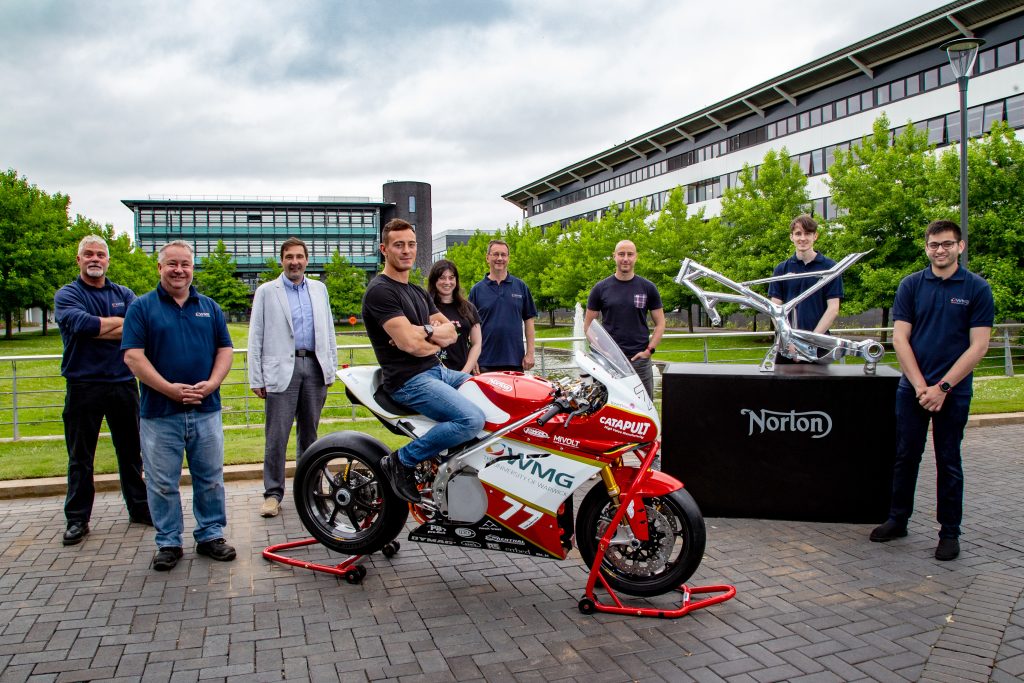Norton Motorcycles engineers are working with students at the University of Warwick to develop a TT-capable electric racing motorcycle, named ‘Frontier’.
The research team has developed an electric motorcycle powertrain, using a high-performance sports model as a platform. The electric powertrain, designed to work in the Norton frame, is rated with a power output of 160kW (201bhp) and delivers 400Nm of torque from a standing start. The acceleration and speed characteristics of the electric bike in motion roughly translate into a combustion-engine equivalent of around 900cc to 1,000cc.
The electric motor draws power from an immersion-cooled battery pack that has been designed and tested by the students and is the first of its kind for application in an electric motorcycle. The battery with a capacity of 16 kWh is designed to last longer with the application of robust thermal management strategies, while also allowing for larger short term power peaks required by a racing motorbike.
The battery can be recharged with the common CHAdeMO connector, facilitating fast charging where available and allowing for a full charge of the battery in around an hour (up to 80% from empty in just 32 minutes).
The battery case was manufactured using laser welding techniques developed at WMG, The University of Warwick, a manufacturing process that is easily repeatable for potential serial production, while also incorporating process-control to maximise reliability and strength of the joints.
Students have been able to craft a functioning electric motorcycle based on the Norton frame in just seven months. The project began in October 2020 with the donation of the frame and associated parts, with students working hard to realise their goal alongside studying for their degrees.
Dr Robert Hentschel, CEO of Norton Motorcycles explained the importance of teaming up with future engineers for the creation of an all-electric motorcycle.
“We are thrilled to be able to support the engineers of the future, who are developing tomorrow’s technology today on the basis of a Norton frame,” he said. “Our support by means of donation of the frame is just the beginning. Norton’s team of designers and engineers have been very interested to observe how this project is taking shape, supporting the student team wherever possible with advice and guidance.”
The bike has undergone significant testing including much computer-based validation such as battery cooling, modelling around thermal management, along with physical testing of cells and modules – while constantly reviewing engineering decisions with the help of Norton to minimise and mitigate the risk of failure, according to Aman Surana, Chief Engineer of the Warwick Moto team.
“To have access to Norton’s engineering team, years of experience and data has been a great resource, integral to the design of the bike,” he said. “Combining the motorcycling knowledge from Norton, with the leading research at WMG, University of Warwick has been a fantastic learning opportunity for all students involved. We’re very excited to see what this collaboration leads to.”
